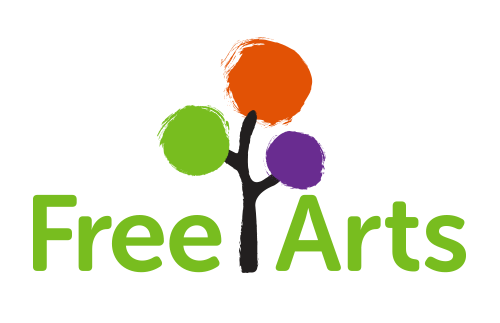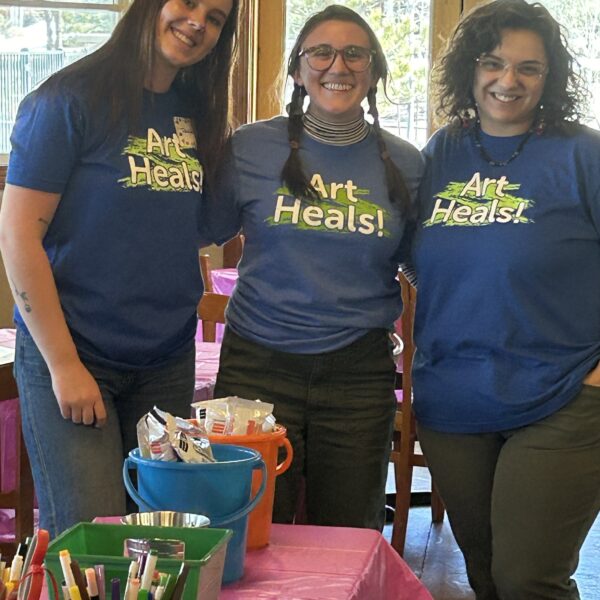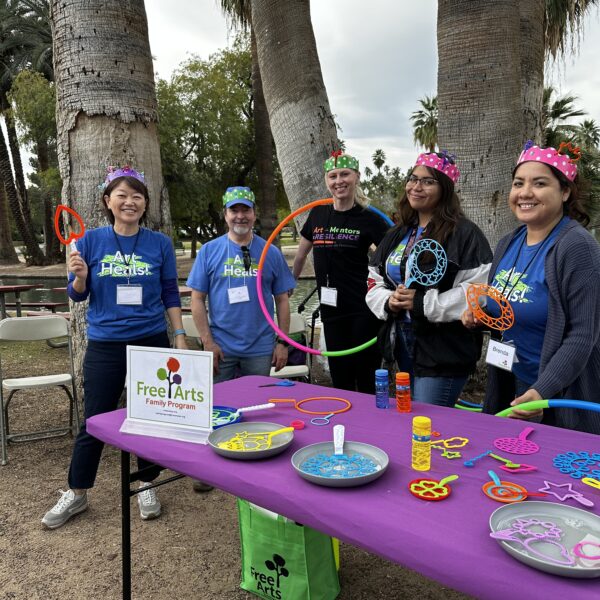
Free Arts relies on contributed income to serve abused and homeless children living in Arizona. Unlike some of our partner agencies, we do not benefit from government contracts, and unlike some of our arts and culture partners, we do not benefit from a membership model or a store or gift shop. Instead, we rely on the generosity of people like you and families like yours.
You already know that giving to Free Arts means transforming children’s trauma to resilience through the arts. Here are three things you might not already know about giving to Free Arts:
Tip 1. You can pay your taxes at the same time.
If you are gainfully employed, chances are good that you have some kind of state income tax obligation. You could satisfy that obligation by paying the taxman, or you could satisfy it by donating to Free Arts.
Last year, 37% of all contributions to Free Arts came from individuals – by far the largest single category of financial support. Many of these donors took advantage of Free Arts’ status as an Arizona Qualifying Foster Care Charitable Organization (QFCO) to claim state tax credits of up to $500 for single taxpayers and up to $1,000 for married taxpayers filing jointly. Some of these donors gave both to Free Arts and to an Arizona Qualifying Charitable Organization (QCO), donations to which are eligible for a $400/$800 state tax credit for single/married taxpayers.
Unlike tax deductions, which reduce your taxable income, voluntary cash contributions to QFCOs and QCOs reduce your state income tax liability. The tax credit for QFCOs is claimed on Form 352 (our QFCO Code is 10015). You must also complete Arizona Form 301, Nonrefundable Individual Tax Credits and Recapture, and include Forms 301 and 352 with your tax return to claim this credit.
Tip 2. You can give monthly.
If you are unable to make a one-time gift of $500 or $1,000, consider making a monthly gift of $42 or $84 via our website. Simply tick the checkbox that says, “I would like to make this a recurring donation,” and at the end of a year you will have made enough total contributions to claim your full tax credit (whether single or married).
Tip 3. Employers give, too.
Does your employer match donations to charitable organizations? If so, then not only can you give to Free Arts and claim the tax credit, but you could give through your employer and have them match or even overmatch (i.e., match twice your gift!) your tax credit contribution.
Here’s an example. Tara, a recent college graduate, works for a large financial services company that matches charitable donations at a ratio of $1 for $1 up to $8,000. Additionally, the company will overmatch employee donations at a ratio of $2 for every $1 up to $1,000 whenever the employee volunteers for the nonprofit more than 50 hours in a year. As a volunteer mentor, Tara participates in a handful of Free Arts Days every year as well as one of the camps in the Free Arts Camp Series, easily placing her above her company’s overmatching threshold for volunteer hours. Tara also donates $42 from each of her semimonthly paychecks to Free Arts. At the end of the year, she has given Free Arts $1,008. Her employer overmatches $1,000 of her donation and matches $8, giving Free Arts $2,008. As a married taxpayer, Tara claims her QFCO tax credit on her Arizona income tax return, reducing her income tax liability by $1,000. Since Tara’s household would have paid $1,000 in Arizona income tax anyway, the cost to her household for Free Arts donations for the year was only $8, and yet Tara is now directly responsible for $3,016 in donations to Free Arts!
Do you have questions about claiming your tax credit, making a recurring gift, or your employer’s matching gift program? Give us a call at (602) 258-8100 or email us at info@freeartsaz.org!
Disclaimer. Free Arts for Abused Children of Arizona does not provide tax advice. Please consult your tax advisor or the Arizona Department of Revenue for more information on the tax credit for Qualifying Foster Care Charitable Organizations or other tax credits.



